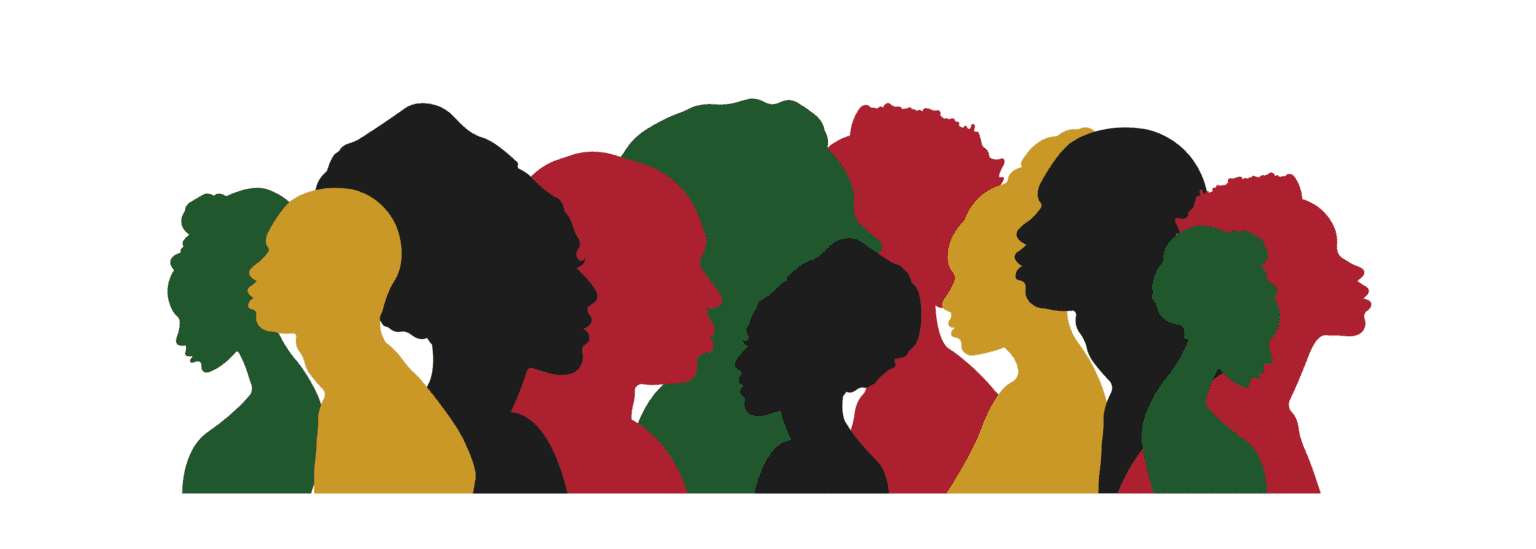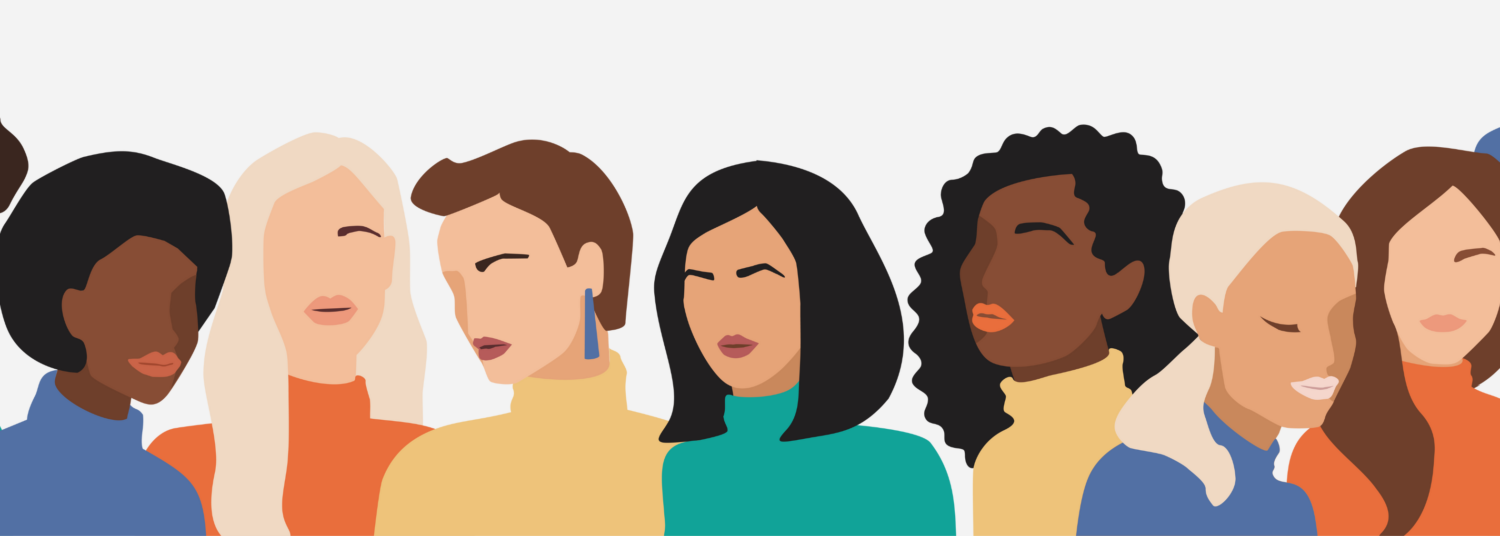In today’s climate, it is more important than ever that Black History Month should be spent honoring and reflecting on the history and contributions of Black Americans. In doing so, we must also acknowledge that Black deaf people are often not recognized for their impact on the deaf community. This month offers an opportunity to shine a light on the rich tapestry of Black deaf culture, history, and accomplishments that have shaped our world. In a landscape where the narratives of Black deaf people are often sidelined, it’s essential to create space for those stories to be shared.
Black Deaf Students are Underrepresented on College Campuses
The National Postsecondary Student Aid Study (NPSAS) found that among deaf people enrolled in college, 47.4% are white compared to 48.1% of their hearing peers. However, Black deaf students are significantly underrepresented; only 10.0% of deaf students are Black versus 13.1% of hearing students. This finding suggests that greater recruitment and retention efforts are needed to increase the number of Black deaf students attending postsecondary institutions. To learn more about this data, please visit our Data Dashboard.
We can address this disparity head-on by implementing targeted recruitment and retention strategies tailored to the needs of Black deaf students. This includes providing culturally competent support services, fostering inclusive learning environments, and actively engaging with Black communities to dismantle systemic barriers to education. We urge educators, policymakers, and advocates to prioritize empowerment of Black deaf students and equal access to higher education opportunities.
“Black deaf students are significantly underrepresented in postsecondary education. This is just the tip of the iceberg. At the end of the day, there is an urgent need for targeted research and systemic changes to dismantle the intersecting oppressions faced by Black deaf individuals in educational and professional settings.”
To understand some of the challenges that many Black deaf people encounter, check out the stories below from Felicia and Wawa.
The Importance of Black Deaf Role Models
This and every month, it’s vital to recognize the important role that Black deaf role models play in the lives of deaf youth. Not only do role models embody the resilience and strength of the Black community, but they also serve as inspiration for deaf youth facing similar challenges or who have similar goals. Black deaf role models are crucial for representation and visibility. Their achievements, leadership, and contributions shatter stereotypes and demonstrate the vast potential within the intersection of Black and deaf identities.
Moreover, Black deaf role models offer mentorship and guidance, paving the way for future generations to pursue their dreams and overcome obstacles with determination and passion. Their stories highlight the power of perseverance, cultural pride, and the importance of self-advocacy.
The videos below are just a few examples of Black deaf professionals who set a soaring bar for all role models, and we encourage you to share these videos with the deaf students in your life.
Intersectional Identities Within the Deaf Community
Each individual’s unique experiences, preferences, and needs are shaped by their identity. With that in mind, it’s important to recognize that deaf people are not a monolith. Rather, there is a vibrant spectrum of identities and perspectives. Engaging with a broad range of voices within the deaf community, including Black deaf organizations and advocacy groups, can offer invaluable insights into identity and accessibility.
And when it comes to accessibility, there is nothing more important than recognizing and respecting these differences in identity. While some may rely on sign language interpreters or speech-to-text services, others may find assistive listening systems or alternative setups better suited to their needs. These choices may be deeply intertwined with individual identity and cultural background, and cannot be served by blanket approaches to access.
However, fostering a truly supportive environment goes beyond individual actions. Institutions must actively work to create spaces where Black deaf students feel seen, heard, and valued. By embracing and actively supporting the identities of all students, we can build an educational landscape that celebrates the richness of Black deaf culture and identity.
If you’d like to contact us for personalized support, please email our Help Team at [email protected]. You can also reach out to our listserv or visit our Community Forum, which is a dedicated online discussion space for postsecondary disability services professionals.
Discover Community Resources & Organizations
- National Black Deaf Advocates (NBDA)
- The National Black Deaf Advocates (NBDA) is the official advocacy organization for thousands of Black deaf and hard of hearing people in the United States. Black deaf leaders were concerned that Black deaf and hard of hearing Americans are not adequately represented in leadership and policy decision-making activities affecting their lives so they established NBDA in 1982. Additionally, NBDA has scholarship opportunities for qualifying students.
- Collegiate Black Deaf Student Leadership Institute (CBDSLI)
- Collegiate Black deaf Student Leadership Institute was established in 2005 as an intensive one week leadership training opportunity for minority college students. The CBDSLI’s purpose is to further develop and practice leadership skills, and to prepare the next generation of Black deaf and hard of hearing leaders to serve in diverse deaf & world communities. The objectives for the CBDSLI participants are:
- Gallaudet University, Center for Black Deaf Studies (GU CBDS)
- Established in 2020, the Center for Black Deaf Studies (CBDS) operates as an outreach center for teaching and learning about the Black Deaf experience and provides easy access to a range of useful content resources.
- National Alliance of Black Deaf Interpreters (NAOBI)
- The purpose of this organization is to promote excellence, empowerment and the continued growth of African American /Black professionals in the field of sign language interpreting in the context of a multicultural, multilingual environment.
- Black, Disabled, and Proud: College Students with Disabilities
- This organization is a group of disability services professionals at Historically Black Colleges and Universities (HBCUs) and Predominantly Black Colleges and Universities (PBCUs). The project is permanently based at the Association on Higher Education And Disability (AHEAD).
- National Black Disability Coalition
- NBDC is a response to the need for Blacks with Disabilities to organize and assist each other around issues of mutual concern and use our collective strength to address disability issues in both the greater Black community and the greater disability community.
- Deaf Women of Color
- Deaf Women of Color promotes advocacy, social justice, equity, inclusion, cultural experiences, education, empowerment, training, professional development, and networking for Deaf women who are African American/Black, Asian/Pacific Islander, Native American, Latina/Hispanic, Latinx, or multiracial/intersectional identifying.
- Deaf Studies Digital Journal, Black Deaf Resources
- A collection of resources, organizations, publications, articles, books, films, and videos centering Black deaf lives and Black deaf voices.
- Black Deaf Center
- The purpose of Black Deaf Center (BDC) is to preserve the rich heritage of Black deaf individuals. BDC is committed to being a comprehensive referral agency, providing access to valuable data, educational resources, and research initiatives.
- The Black Deaf Project
- The Black Deaf Project is a 501c(3) educational Deaf and hearing Black collaborative nonprofit that creates educational materials, experiences, and trainings rooted in Black Deaf cultures in solidarity with other Communities of Color to build relationships, increase cultural understanding, promote respect, and create pathways to joy and liberation.
Additional Resources
- Inside Higher Ed: Building Up the Black Deaf Student Community
- Postsecondary Achievement of Black Deaf People in the United States: 2019
- Deaf Postsecondary Data Dashboard
- Best Decision Ever: Historically Black Colleges and Universities & Deaf Students
- Reflections on Black History Month By Dr. Joseph Hill
- NDC Attends the 2023 National Black Deaf Advocates Conference









